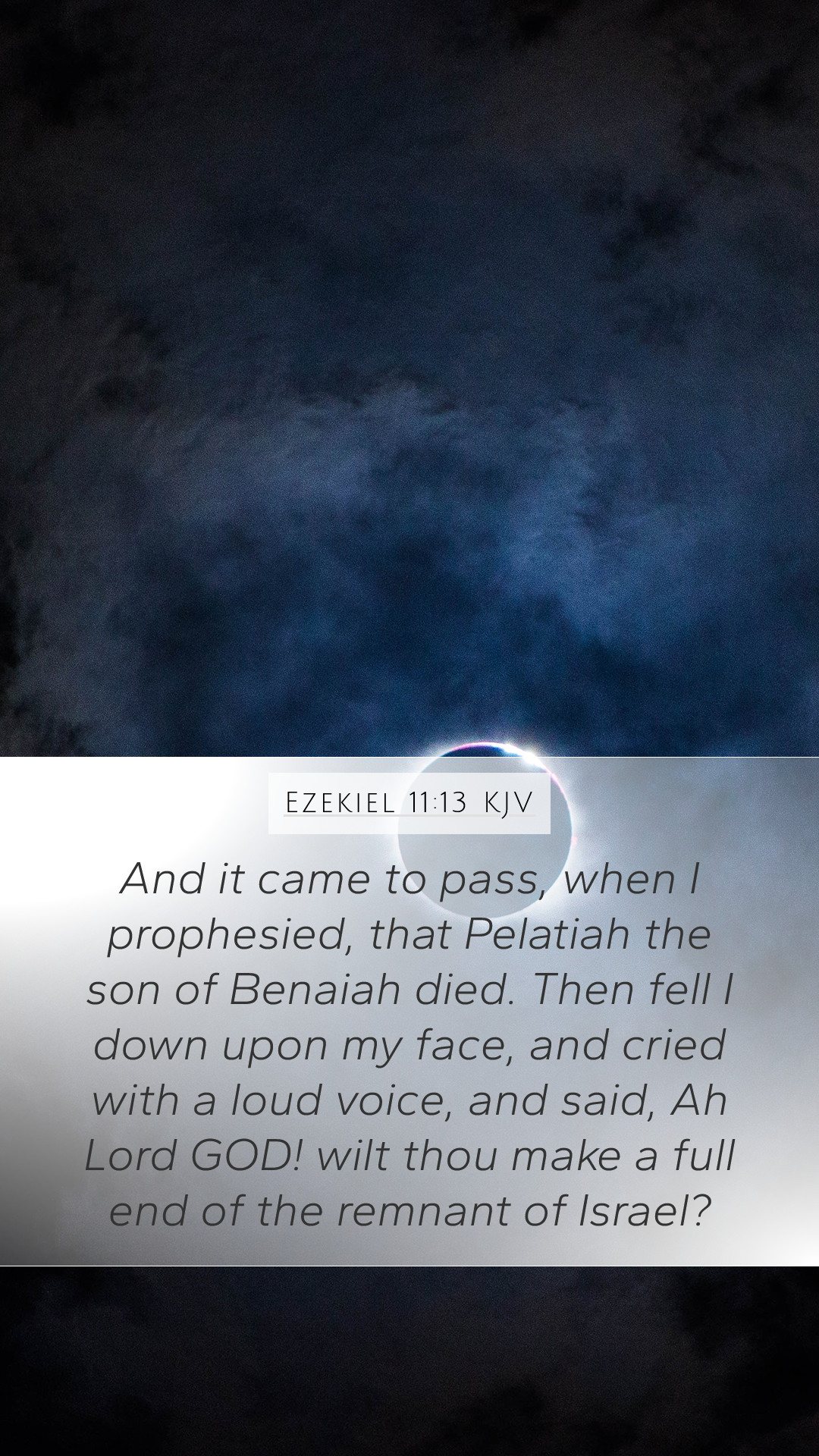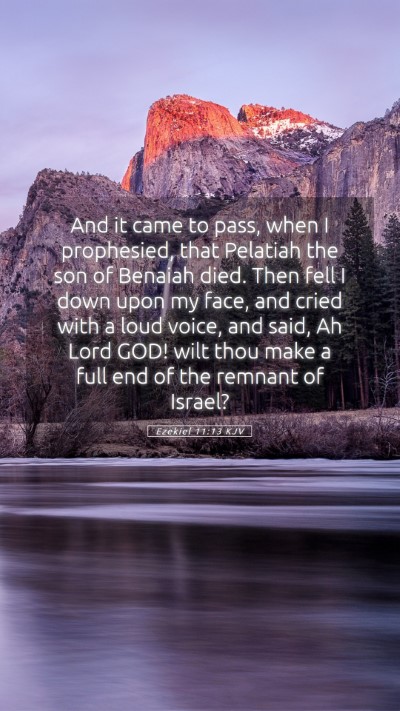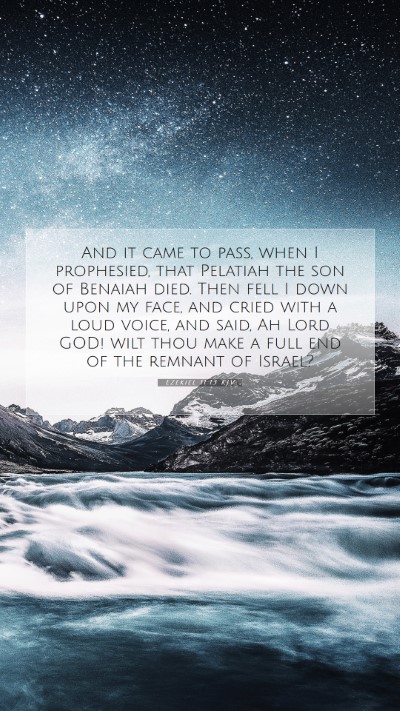Ezekiel 11:13 - Understanding the Context and Meaning
Ezekiel 11:13 is a verse that captures a moment of profound emotional and spiritual significance within the prophetic ministry of Ezekiel. The verse reads, "And it came to pass, that when I prophesied, Pelatiah the son of Benaiah died. Then fell I down upon my face, and cried with a loud voice, and said, 'Ah Lord God! wilt thou make a full end of the remnant of Israel?'" Herein lies a multifaceted understanding that encompasses divine judgment, the burden of prophetic responsibility, and God's covenant relationship with Israel.
Bible Verse Meanings
This verse brings to light several key themes crucial for Bible verse interpretations and Bible verse understanding. As articulated by Matthew Henry, the death of Pelatiah symbolizes the imminent judgment of God upon Israel, underscoring the seriousness of their rebellion and the consequences that follow. Ezekiel's lament here reflects the heavy burden borne by prophets who carry the weight of God’s messages.
Contextual Analysis
Ezekiel speaks during a time of great anguish for the people of Israel, who are in exile and grappling with the destruction of their homeland. Adam Clarke emphasizes that this moment highlights the ultimate fate of those who persist in sin and disbelief, noting that Pelatiah’s swift demise serves as a stark warning to the remaining Israelites.
Prophetic Burden
The act of falling on his face in prayer indicates Ezekiel's deep emotional response to the vision of God's judgment. According to Albert Barnes, this reflects not only the personal sorrow of the prophet but also a profound concern for the fate of the remnant of Israel. Such actions reveal the heart of a true prophet—one who intercedes earnestly for those under judgment.
Divine Compassion and Justice
The juxtaposition of God’s justice and His love for Israel is evident here. The meaning of this Bible verse lies in its appeal to God's mercy, as Ezekiel cries out, pleading not for the eradication of the remnant but for their preservation. This demonstrates the ongoing covenant relationship and the hope for restoration even amidst judgment.
Bible Cross References
- Jeremiah 14:19 - The anguish of the prophet for Judah’s sin.
- Ezekiel 9:5-6 - The judgment upon those who reject God.
- Romans 11:5 - A remnant is saved by grace.
Application of the Verse
For contemporary readers engaging in Bible study insights and Bible study groups, this passage invites reflection on the nature of divine judgment and grace. It challenges individuals to consider the significance of prophetic voices in their own lives and communities. How does one respond to divine calling, and how does one lament for those who are spiritually lost?
Conclusion: Insights for Bible Study
In summary, Ezekiel 11:13 is a poignant reminder of the severity of sin, the inevitability of God's judgment, and, importantly, His enduring love and desire to save His people. The insights from notable Bible study resources and Bible commentaries ensure we grasp the depth of such passages. Engaging with this verse encourages deeper Biblical exegesis and invites us to explore how the lessons from the past apply to our own daily lives and understanding of Scripture.


